
Punica granatum bhagwa - Plant
(MRP Inclusive of all taxes)
- Shipping ₹79 for entire order
- Dispatch in 7 days
- Country of origin: India

(MRP Inclusive of all taxes)
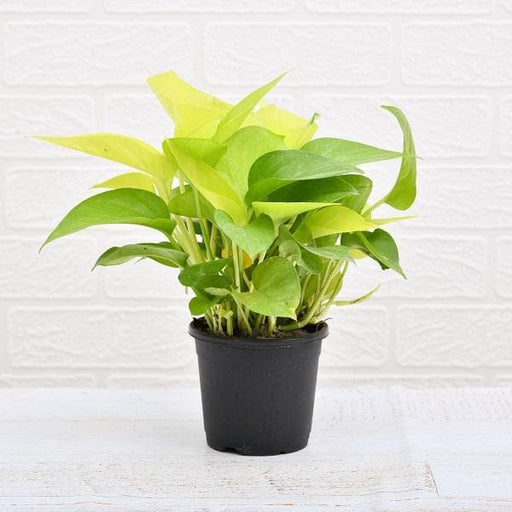 Save 29%
Save 29%
Air Purifier Money Plant with Pot The Air Purifier Money Plant, also known as Pothos or Epipremnum aureum, is a stunning indoor plant that...
View full details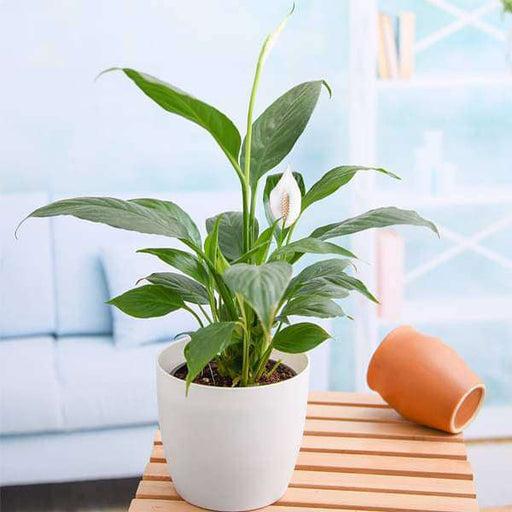
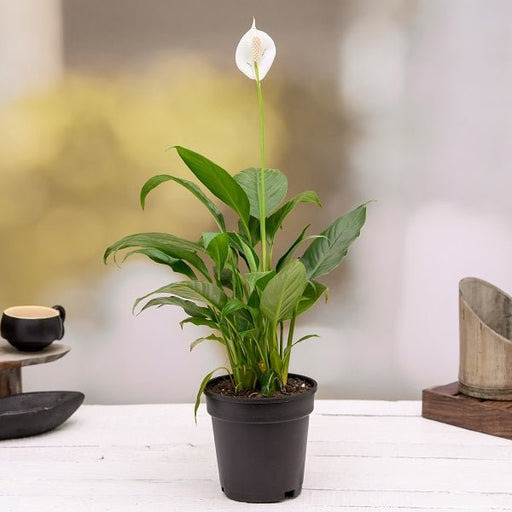 Save up to 15%
Save up to 15%
Peace Lily, Spathiphyllum - Plant The Peace Lily, scientifically known as Spathiphyllum, is a stunning houseplant celebrated for its elegant white...
View full details
 Save 25%
Save 25%
Jasminum sambac, Mogra, Arabian Jasmine - Plant Jasminum sambac, commonly known as Mogra or Arabian Jasmine, is a fragrant flowering plant...
View full details
 Save 18%
Save 18%
Combo Constituents Includes the Parijat Tree (Night-Flowering Jasmine), a culturally significant plant with fragrant flowers. Description The Pari...
View full details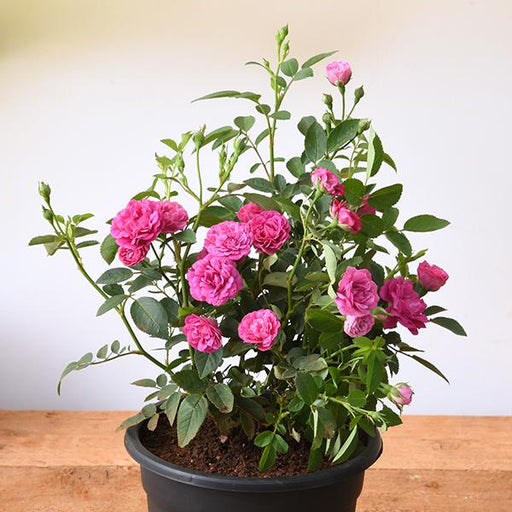
 Save 25%
Save 25%
Miniature Rose, Button Rose (Any Color) - Plant The Miniature Rose, also known as the Button Rose, is a charming and compact flowering plant that ...
View full details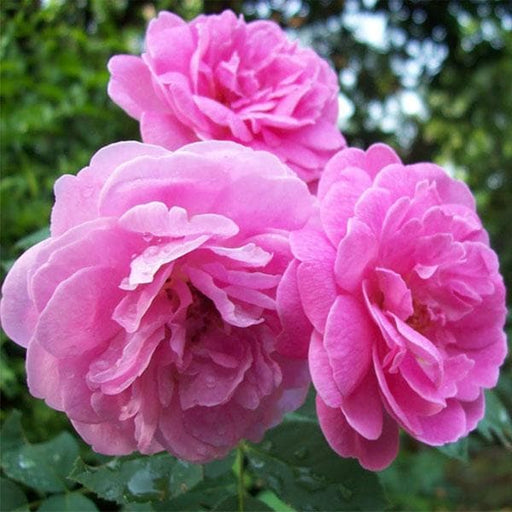 Save 25%
Save 25%
Damascus Rose, Scented Rose (Any Color) - Plant The Damascus Rose, also known as Rosa damascena, is a timeless symbol of beauty and romanc...
View full details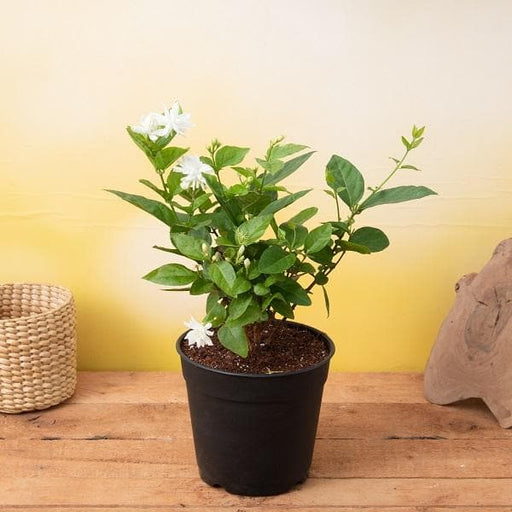
 Save 17%
Save 17%
Beautiful Fragrant Mogra, Arabian Jasmine Plant with Pot The Beautiful Fragrant Mogra, also known as Arabian Jasmine (Jasminum sambac), is...
View full details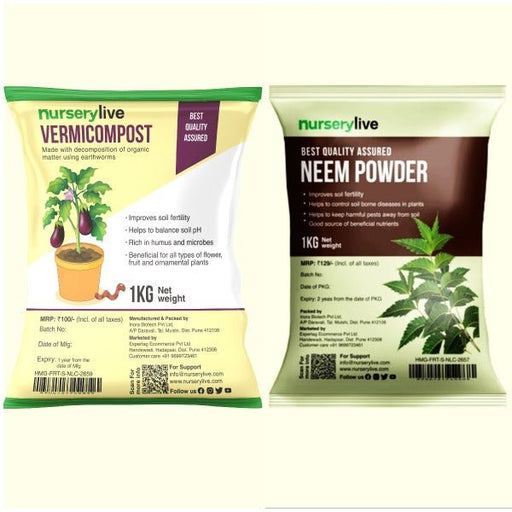 Save 15%
Save 15%
Pack of Vermicompost and Neem Cake for House Plants Transform your indoor garden with our premium Pack of Vermicompost and Neem Cake, spec...
View full details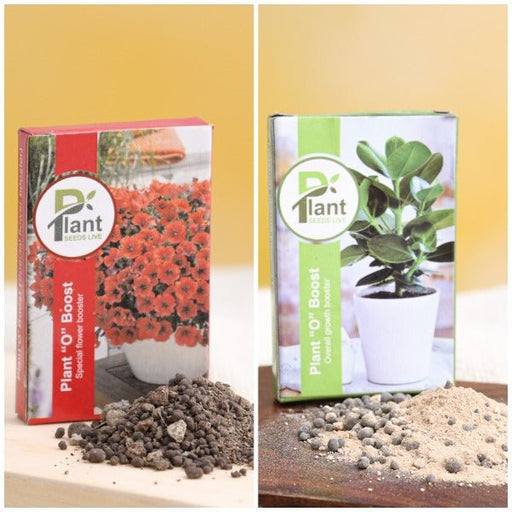
Pack of Plant Growth and Flower Boosters Unlock the full potential of your garden with our Pack of Plant Growth and Flower Boosters! This ...
View full details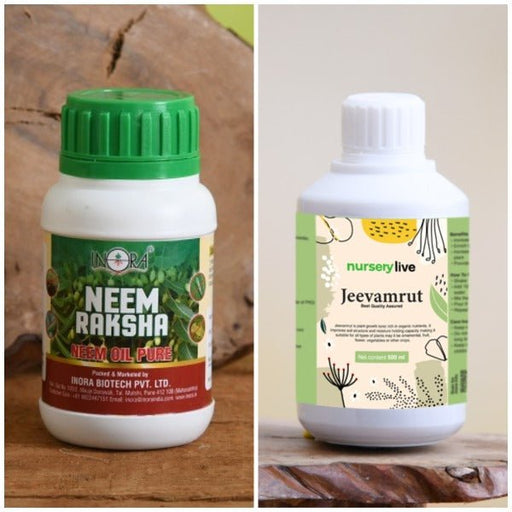 Save 38%
Save 38%
Combo of Jeevamrut and Neem Raksha for Easy Growth and Protection of Houseplants Transform your indoor garden with our exclusive combo of ...
View full details Save 22%
Save 22%
Plant Nutrients Kit (Pack of 16) for a Healthy Garden Transform your garden into a lush paradise with our Plant Nutrients Kit, featuring 1...
View full details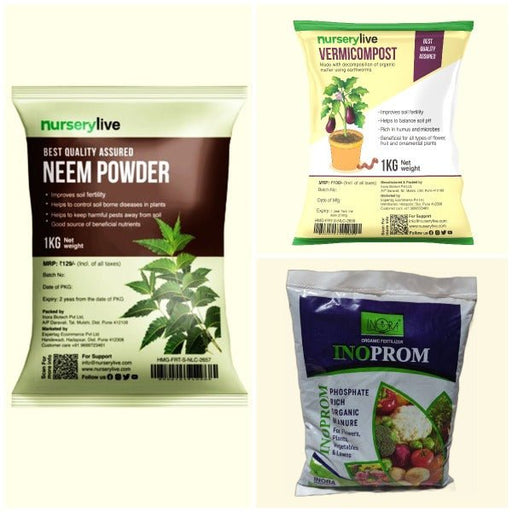 Save 16%
Save 16%
Combo of Top Plant Fertilizers Elevate your gardening game with our exclusive Combo of Top Plant Fertilizers, featuring two bags of premiu...
View full details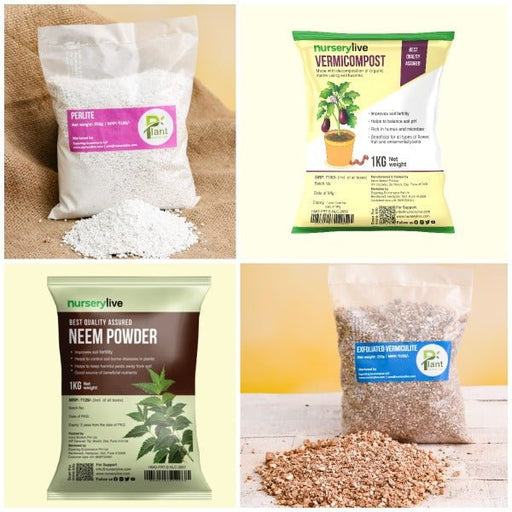 Save 24%
Save 24%
Pack of 4 Additives to Make Soil Healthy and Nutrient Rich Transform your garden into a thriving ecosystem with our Pack of 4 Additives de...
View full details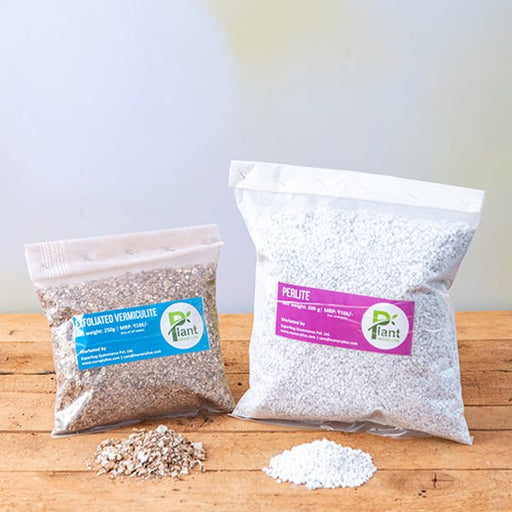 Save 30%
Save 30%
Transform your gardening experience with our premium Combo of Perlite and Vermiculite. This unique blend is designed to enhance soil aeration and ...
View full details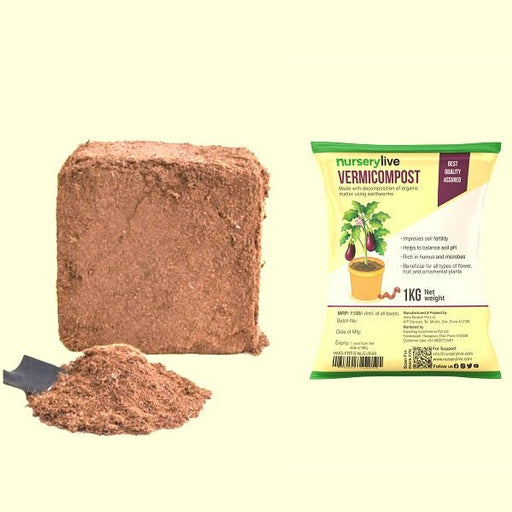 Save 27%
Save 27%
Combo of 2 Vermicompost and Cocopeat - Enrich Your Soil Naturally! Transform your garden into a thriving ecosystem with our Combo of 2 Ver...
View full details
 Save 35%
Save 35%
Best 6 Plants for Perfect Indoor Garden Transform your living space into a lush oasis with our curated collection of the Best 6 Plants for a...
View full details
 Save up to 50%
Save up to 50%
Mini Succulent Garden Pack Transform your space with our Mini Succulent Garden Pack, featuring a delightful collection of 4 any variety beautiful s...
View full details
 Save 30%
Save 30%
5 Best Fragrant Plants Transform your garden or indoor space into a fragrant paradise with our curated selection of the 5 Best Fragrant Plants. Th...
View full details
 Save 24%
Save 24%
Set of 2 Bonsai Looking Grafted Adeniums Transform your indoor or outdoor space with our exquisite Set of 2 Bonsai Looking Grafted Adenium...
View full details Save 45%
Save 45%
Top 4 Die Hard Succulents Pack Transform your indoor or outdoor space with our Top 4 Die Hard Succulents Pack, featuring a curated selecti...
View full details
 Save 30%
Save 30%
5 Best Indoor Plants Pack Transform your living space into a lush oasis with our '5 Best Indoor Plants Pack.' This carefully curated collection fe...
View full details
 Save 25%
Save 25%
Set of 4 Evergreen Air Purifier Plant Pack Transform your indoor space into a lush, green oasis with our Set of 4 Evergreen Air Purifier Pla...
View full details| SrNo | Item Name |
|---|---|
| 1 | Punica granatum bhagwa - Plant |
The Punica granatum Bhagwa, commonly known as the Bhagwa Pomegranate, is a remarkable fruit-bearing plant renowned for its juicy, sweet, and vibrant red seeds. This cultivar is celebrated for its high yield and exceptional quality, making it a favorite among gardeners and fruit enthusiasts alike. With its striking appearance and lush foliage, the Bhagwa Pomegranate not only enhances your garden but also provides delicious, nutrient-rich fruits.
What sets the Bhagwa Pomegranate apart is its unique flavor profile and health benefits. Rich in antioxidants, vitamins, and minerals, this fruit is known to promote heart health, improve digestion, and boost immunity. Its adaptability to various climates and soil types makes it an ideal choice for both home gardens and commercial orchards.
One of the special features of the Bhagwa Pomegranate is its stunning, bright red flowers that bloom in the summer, attracting pollinators and adding aesthetic value to your landscape. The plant is also drought-resistant, making it an environmentally friendly choice for sustainable gardening.
Punica granatum Bhagwa is not only beneficial for personal health but also contributes positively to the environment. Its drought-resistant nature makes it suitable for arid regions, helping to conserve water. Additionally, the plant supports local biodiversity by attracting pollinators and providing habitat for various species.
If you think the Bhagwa pomegranate is just a pretty fruit, think again! This little powerhouse is packed with antioxidants, vitamins, and minerals that can make your health sing. From boosting your immune system to improving heart health, it’s like nature’s multivitamin, but way tastier. Plus, who wouldn’t want to impress their friends with a fruit that sounds like a royal name?
Caring for your Bhagwa pomegranate tree is like nurturing a diva. It demands the right amount of sunlight, water, and love. Too much water? It’ll sulk. Too little? It’ll throw a tantrum. But get it just right, and you’ll be rewarded with luscious, ruby-red fruits that will have your taste buds dancing.
Cultivating the Bhagwa pomegranate is like hosting a garden party. You need the right guests (soil, sunlight, and space) to ensure a fabulous time. With a little patience and the right conditions, you’ll have a bountiful harvest that will make your neighbors green with envy.
The uses of Bhagwa pomegranate are as diverse as a buffet spread. From juices to jams, salads to sauces, this fruit can jazz up any dish. And let’s not forget its role in traditional medicine—who knew a fruit could be a culinary and health superstar?
Propagating your Bhagwa pomegranate tree is like playing matchmaker. You can use seeds or cuttings, but either way, you’re setting the stage for a fruitful romance. With a little TLC, you’ll have a mini orchard in no time, and your gardening friends will be begging for a slice of the action.
Every diva has her detractors, and the Bhagwa pomegranate is no exception. Pests can be a real pain, but with the right strategies, you can keep them at bay. Think of it as a protective shield for your precious tree—after all, nobody wants a fruit that’s been nibbled on by uninvited guests.
Harvesting Bhagwa pomegranates is like a treasure hunt. You wait patiently, watching the fruits turn from green to a glorious red, and then it’s time to pluck them. The satisfaction of biting into a freshly harvested pomegranate is like winning the gardening lottery—sweet, juicy, and oh-so-rewarding.
The nutritional profile of the Bhagwa pomegranate reads like a health magazine’s wish list. Packed with fiber, vitamins C and K, and a plethora of antioxidants, it’s a guilt-free indulgence. Eating it is like giving your body a high-five—who knew being healthy could taste so good?
The Bhagwa pomegranate is a bit of a soil snob. It prefers well-drained, sandy loam that’s rich in organic matter. Think of it as the Goldilocks of plants—not too wet, not too dry, but just right. Get the soil conditions right, and you’ll be rewarded with a tree that thrives.
If you want your Bhagwa pomegranate to flourish, you need to consider its climate preferences. This tree loves warm, sunny weather and can’t stand frost. It’s like a sunbather who’s allergic to cold—give it the right conditions, and it’ll reward you with a bounty of delicious fruits.
The Bhagwa pomegranate is just one of many fabulous varieties out there. Each has its own unique flavor and characteristics, making it a delightful exploration for fruit lovers. Whether you prefer sweet, tart, or somewhere in between, there’s a pomegranate variety that’s just waiting to be your new best friend.
Cooking with Bhagwa pomegranates opens up a world of culinary creativity. From refreshing salads to decadent desserts, this fruit can elevate any dish. It’s like the cherry on top, but way more exotic. So grab your apron and get ready to impress your taste buds and dinner guests alike!
Punica granatum bhagwa, also known as the Bhagwa pomegranate, is a delightful fruit-bearing plant renowned for its juicy, ruby-red seeds. This beauty not only adds a splash of color to your garden but also offers a sweet-tart taste that can make your taste buds dance. Who knew gardening could be so delicious
Caring for your Bhagwa pomegranate is like nurturing a diva. It loves well-drained soil, plenty of sunlight, and occasional watering. Just remember, too much water can make it sulky! Prune it occasionally to keep it looking fabulous and to encourage those luscious fruits. Your garden will thank you with a bountiful harvest!
Patience is a virtue, especially with the Bhagwa pomegranate! Typically, this plant starts bearing fruit in about 2-3 years after planting. Once it gets going, you’ll be rewarded with a dazzling display of fruits, usually ready for harvest in late summer to early fall. Get ready to impress your friends with your gardening prowess!
The Bhagwa pomegranate is not just a pretty face; it’s a health powerhouse! Packed with antioxidants, vitamins, and minerals, it can boost your heart health, improve digestion, and even give your skin a glow-up. Eating these juicy gems is like giving your body a delicious hug. Who knew healthy could taste so good
Absolutely! The Bhagwa pomegranate is a pot-friendly plant, perfect for those with limited garden space. Just ensure your pot has good drainage and is large enough for its roots to stretch out. With the right care, you’ll have a portable fruit factory that can brighten up any balcony or patio. Talk about a garden on the go!
The Bhagwa pomegranate thrives in warm, sunny climates. It loves temperatures between 20-30°C (68-86°F) and can tolerate some drought. If you live in a cooler area, consider giving it a cozy spot indoors during winter. This plant is like a sunbather; it just wants to soak up those rays and produce delicious fruits!
Watering your Bhagwa pomegranate is a balancing act. During the growing season, give it a good drink once a week, but let the soil dry out between waterings. In winter, cut back on the H2O. Overwatering can lead to root rot, and nobody wants a soggy pomegranate. Keep it thirsty, but not parched!
Your Bhagwa pomegranate might attract some uninvited guests like aphids, mealybugs, and spider mites. Keep an eye out for these little party crashers! A gentle spray of water or insecticidal soap can send them packing. Remember, a healthy plant is a happy plant, and you want your pomegranate to be the life of the garden party!
Propagating your Bhagwa pomegranate is as easy as pie! You can do it through seeds or cuttings. For seeds, plant them in well-draining soil and keep them warm. For cuttings, snip a healthy branch, let it callous, and then plant it. With a little love and patience, you’ll have new plants sprouting like magic!
The best time to plant your Bhagwa pomegranate is in spring, when the frost has bid adieu. This allows the plant to establish its roots and soak up the sun. If you’re in a warmer climate, you can even plant in fall. Just make sure it’s cozy enough to survive the winter chill!
The Bhagwa pomegranate is a tough cookie, but it prefers to avoid the cold. In regions with harsh winters, it’s best to bring it indoors or provide some protection. If left outside, it might sulk and lose its leaves. A little winter care can ensure it bounces back in spring, ready to shine again!
The Bhagwa pomegranate stands out with its vibrant red fruits and sweet flavor, making it a superstar among pomegranates. Its high juice content and beautiful arils are perfect for snacking or adding to dishes. Plus, it’s a showstopper in any garden, combining beauty and bounty. Who wouldn’t want this gem in their plant collection